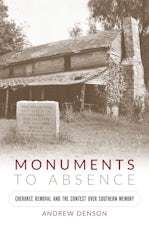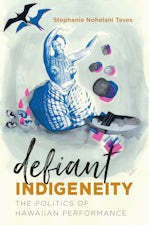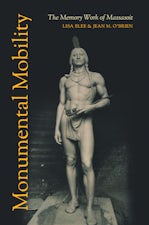Staging Indigeneity
Salvage Tourism and the Performance of Native American History
By Katrina Phillips
262 pp., 6.125 x 9.25, 22 halftones, 4 maps, 1 table, notes, bibl., index
-
Paperback ISBN: 978-1-4696-6231-2
Published: March 2021 -
E-book EPUB ISBN: 978-1-4696-6232-9
Published: January 2021 -
E-book PDF ISBN: 979-8-8908-5186-4
Published: January 2021 -
Hardcover ISBN: 978-1-4696-6230-5
Published: March 2021
Buy this Book
- Paperback $29.95
- Hardcover $95.00
- E-Book $24.99
For Professors:
Free E-Exam Copies
Awards & distinctions
2021 George Freedley Memorial Award, Theatre Library Association
Across time, Phillips argues, tourism, nostalgia, and authenticity converge in the creation of salvage tourism, which blends tourism and history, contestations over citizenship, identity, belonging, and the continued use of Indians and Indianness as a means of escape, entertainment, and economic development.
About the Author
Katrina Phillips (Red Cliff Ojibwe) is assistant professor of American Indian history at Macalester College.
For more information about Katrina Phillips, visit
the
Author
Page.
Reviews
“This is an important study about “playing Indian” and the complexities of American Indian identity.”—CHOICE
“An exciting first book . . . [that] contributes important historical and methodological interventions for how one can engage the history of the past and present.”—H-AmIndian
“Thoroughly researched and well-written . . . Phillips rejects simple narratives and, instead . . . brings a nuanced understanding of these varied motivations as well as the shifting meanings that the pageants hold for American Indians over time.”—The North Carolina Historical Review
“An excellent study of conquest or settler tourism. . . . I learned a great deal from reading this book.”—American Indian Culture and Research Journal
“Nuanced. . . . [Phillips] situates the dramas she has come to watch in the context of each town’s economic ambitions and its fraught history with Indigenous people.”—Journal of American History
“Phillips’s excellent book forces us to consider how we depict our history—who creates it, who controls it, and for what purposes. . . . In an age when some Americans are calling for us to sanitize our history—to revere and celebrate it rather than to think critically about it—[Staging Indigeneity] could not be more appropriate, useful, or relevant.”—Journal of American Ethnic History




